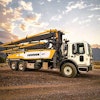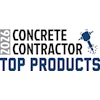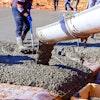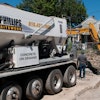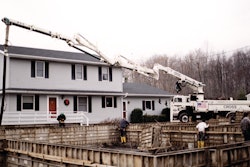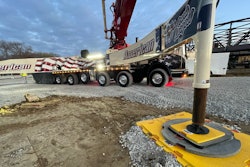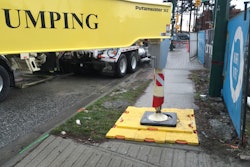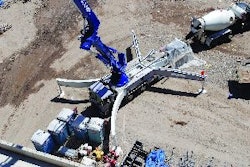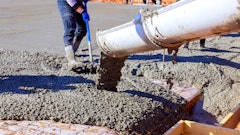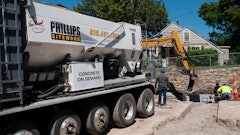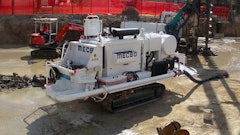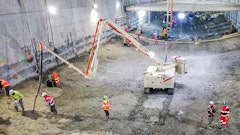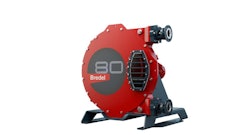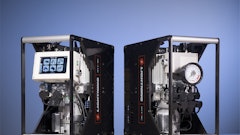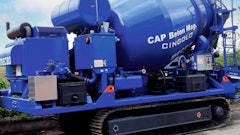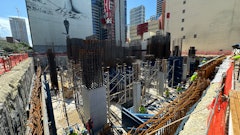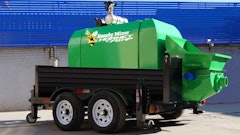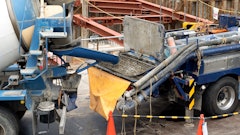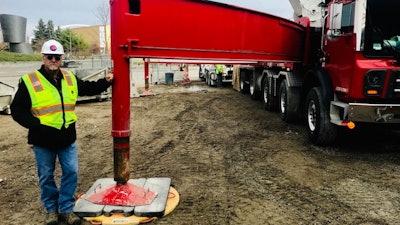
Jim Manson is President of Sun Concrete Pumping, a concrete pumping contractor in Grimes, Iowa. The company opened its doors in 1982 with a single small-line pump. Today it operates a diverse fleet with professional operators.
Q. Sun Concrete is a family-owned and operated concrete pumping company with a long history. What does it take to be successful in this business?
A. We put a priority on safety, training, and customer relations. Providing personal service, understanding our customers’ needs is part of that. But success is also due to having skilled operators and well-maintained equipment.
We are a family business. My wife has been a part of the company from the beginning and she’s a very valuable part of our success. She oversees HR, insurance, dispatch—all the office roles that make the company run smoothly. Because we are not a large company, I remain very involved in all aspects of the business.
Q. Why is it important for operators to be trained on their individual pumps?
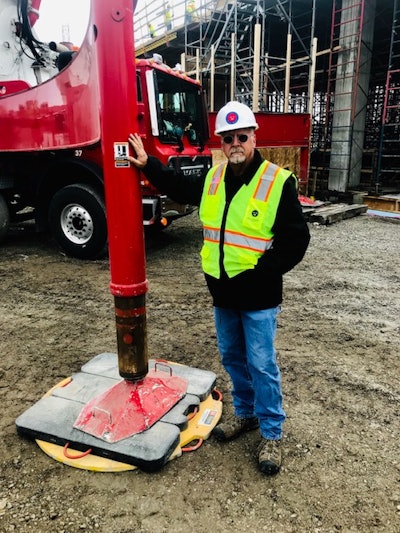 Jim Manson, president of Sun Concrete Pumping, uses 48-in. FiberMax FRP Composite outrigger pads.Sun Concrete Pumping
Jim Manson, president of Sun Concrete Pumping, uses 48-in. FiberMax FRP Composite outrigger pads.Sun Concrete Pumping
Electrocutions and roll-overs are the most common types of accidents. Accident prevention is tied to using the right equipment but also individual operator awareness of proper setup. The operator and equipment work together as a unit.
Q. One of the values your company places in high regard is an investment in quality equipment. How does your investment in DICA outrigger pads relate to that?
A. We believe that having quality equipment and the right tools helps our operators concentrate on the job. We first came to know about DICA in 1998 after I had purchased a million-dollar truck that came with plywood pads. I’m still blown away that companies do that—risking such an expensive investment, not to mention their people, on setting up on wood dunnage. Rolling one pump is one too many. Using engineered outrigger pads provides a more stable setup. Each of our pump trucks carries various sizes of outrigger pads to give the operators the tools they need. We carry extra-big pads for bad ground conditions in less compacted areas. Our operators are trained at understanding proper setup so they can select the right size pad for the situation.
Q. When it comes to safety, how has the concrete pumping industry evolved? What’s something you think still needs work?
A. The industry has come a long way since the 1980s. Before the adoption of radio remote controls, electrocutions were more frequent. Using outrigger pads is a big part of improving the industry too. To some extent, the insurance industry has helped influence change. We can get better rates when we show we are proactive with training. The ACPA has done a lot to raise awareness and provide resources for training, including a safety certification program. In addition, many general contractors and construction owners have stringent safety policies or additional operator testing protocols.
But it still needs work, especially getting smaller companies to comply with a higher level of safety standards. We need more education, and I think a certification requirement would be beneficial. I get that it’s hard to find good workers—and certification would be one more hurdle for business owners—but the certification would raise the bar for training and create more accountability of individual operators. It’s important to invest in your people in the same way that you invest in your equipment.
Q. Like your company, DICA is family-owned and located in Iowa. Your relationship goes back 20 years. Tell me about working with Dick Koberg in those early days when both your businesses were just getting started.
A. We had just bought a Schwing concrete pump—at the time, the largest truck in our fleet. Our sales rep at Schwing had met Dick Koberg at a tradeshow, and he suggested I contact them. As it turns out, our companies are both in Iowa. Dick came out to my shop to see our equipment in person. At the time we purchased SafetyTech outrigger pads for just the largest pump trucks in our fleet, but as I came to understand the benefit of setting outriggers up on pads, we began adding them on every truck.
DICA really helped me understand the physics of the loads on outriggers and how different thicknesses and diameters of outrigger pads stabilize the machine based on the specific loads imposed. For example, the feet on some outriggers are solid and others are designed with a ball and socket. Those react differently to loads. The trucks experience pulsing as concrete is pumped through the boom. This causes outrigger pads to get pushed into the ground. Because of this, we later added 48-in. round FiberMax FRP Composite outrigger pads, which are more rigid, and causes less soil compaction. It’s been the best relationship. They always work with us and have even made custom outrigger pads for me for specific situations.
